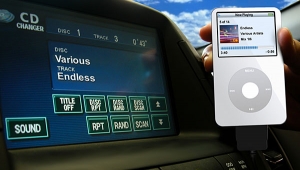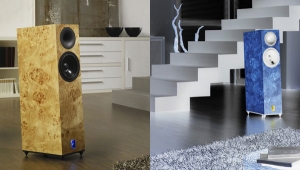| Columns Retired Columns & Blogs |
Recently my speakers have been getting bigger, but I'm guessing that most people would still consider them small. I still prefer standmounters but now they have "real" 8" woofers instead of wimpy 4" or 6" drivers. Takes me back 15 years or so, when I really enjoyed my sytem, but now the speakers are much higher quality. Best of both worlds? I think so.


























